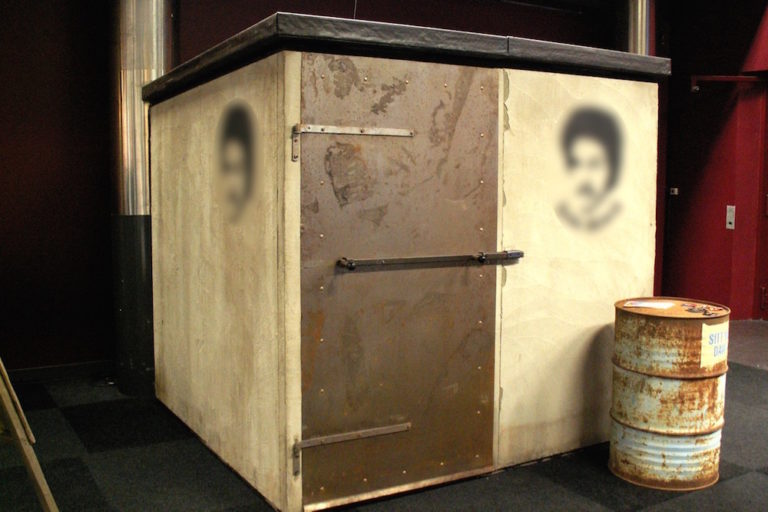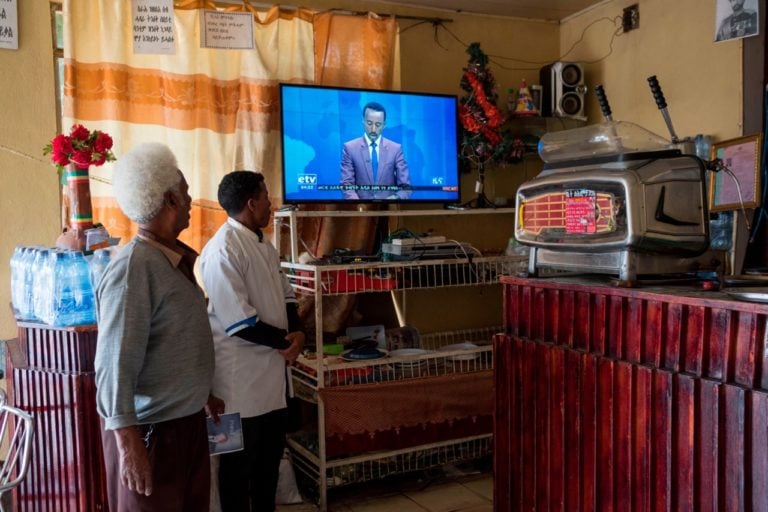As the human rights record of Eritrea comes under review for the second time under the Universal Periodic Review (UPR) mechanism of the United Nations on 3 February 2014, PEN International calls on the Eritrean government to end violations of freedom of expression and the continuing practice of incommunicado detention without trial of writers and journalists.
As the human rights record of Eritrea comes under review for the second time under the Universal Periodic Review (UPR) mechanism of the United Nations on 3 February 2014, PEN International calls on the Eritrean government to end violations of freedom of expression and the continuing practice of incommunicado detention without trial of writers and journalists.
Since the government crackdown on dissent in September 2001, there has been no freedom of opinion or expression, no independent media, no political parties apart from the ruling People’s Front for Democracy and Justice (PFDJ) and no national elections in the country.
‘Eritrea has one of the worst press freedom records in the world. In a state which tolerates no criticism, journalists pay the ultimate price for speaking out. Since 2001, as many as nine journalists have died in custody due to torture and ill-treatment. The international community must take meaningful steps to show this brutal repression will no longer be tolerated,’ – said Marian Botsford Fraser Chair of the Writers in Prison Committee.
Despite accepting recommendations from the 2009 UPR, such as guaranteeing the right to freedom of expression by ending the imprisonment of writers and journalists and allowing the re-establishment of an independent media, the authorities have done little to protect freedom of expression in Eritrea.
According to recent estimates as many as 10,000 Eritreans have been detained for their criticism or opposition of the government since 2001 with at least 28 journalists still in detention. As many as nine journalists and nine politicians may have died in custody due to torture and other ill treatment, harsh conditions and lack of medical treatment.
PEN International’s submission focuses on the country’s failure to meet its international human rights commitments, the lack of freedom of expression since the 2009 UPR, the arrests of journalist and writers, and the high number of reported deaths in custody. PEN International’s recommendations call on the Eritrean government to release all prisoners detained for exercising their right to freedom of expression, to respect international standards of law in the treatment of prisoners, to re-establish an independent media and for complete transparency on the whereabouts, health and legal status of all detained journalists, writers and activists.
Furthermore, the submission urges the Eritrean government to implement all recommendations accepted in 2009 and, in particular for the government to respond positively to the UN Special Rapporteur on human rights in Eritrea’s requests for information and to visit the country, and issue a standing invitation to all other UN Special Procedures mandate holders, including the Special Rapporteur on freedom of expression and the Special Rapporteur on torture.
Eritrean journalist and writer Dessale Berekhet Abraham and poet, journalist and editor Haile Bizen Abraha – both currently writers in residence in the Norwegian cities of Bø and Kristiansand which offer temporary placements to writers through the International Cities of Refuge Network will be attending the Eritrea UPR review alongside representatives of PEN International. Both writers were forced to flee their country after facing persecution in the country and will be available for interview on Monday 3 February.
To read the submission in full click here.
For more information/press/interviews with Dessale Berekhet and/or Haile Bizen Abraha or PEN International representatives, contact Sarah Clarke, International Policy and Advocacy Officer, sarah.clarke@pen-international.org or call +44 (7575) 030028.


